Skill Sports

Can playing multiple sports help in skill development ?
Participation in multiple sports can enhance overall athleticism and skill development by improving physical attributes, reducing injury risk, developing transferable skills, and promoting mental toughness. It also offers social benefits such as expanded networks and increased opportunities for exposure. While specialization has its advantages, playing multiple sports can help athletes become well-rounded competitors.

How can team sports help in individual skill development ?
Team sports contribute significantly to individual skill development by improving communication skills, enhancing leadership abilities, increasing self-confidence, bettering time management, improving social skills, promoting physical fitness and coordination, providing opportunities to learn from mistakes, and fostering adaptability.

Can nutrition affect an athlete's skill level ?
Nutrition is vital for athletes' overall well-being and performance, including skill enhancement, recovery, and injury prevention. It affects cognitive function, physical performance, and recovery, ultimately influencing an athlete's skill level. A balanced diet with proper nutrients can help athletes reach their full potential and succeed in their sports.
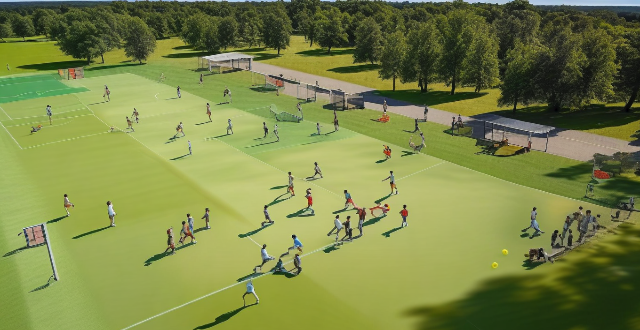
What is the influence of sports on leadership skills development among adolescents ?
This article discusses the influence of sports on leadership skills development among adolescents. It highlights the importance of leadership skills and how sports can contribute to their development through communication, problem-solving, decision-making, teamwork, and self-motivation. The article concludes that sports have a significant impact on the development of essential leadership qualities that are important for success in various aspects of life.

How do individual versus team sports differ in their impact on child development ?
Individual sports foster self-reliance and technical mastery, while team sports emphasize social skills and emotional intelligence. Both have unique benefits for child development, and the choice should consider the child's personality and desired skill development. A combination of both might provide the most well-rounded experience.

How do team sports contribute to social skills development in teenagers ?
Team sports offer a plethora of benefits for teenagers, one of the most significant being the development of social skills. Here's how: 1. **Communication**: Team sports require effective communication to achieve success, such as calling plays, using body language, and non-verbal signals. 2. **Cooperation**: Playing on a team requires cooperation among players to work together towards a common goal, like passing the ball or working together on defense. 3. **Leadership**: Leadership is necessary for success in team sports, whether it's the captain leading warm-ups or a player stepping up in a critical moment. 4. **Respect**: Respect is crucial in team sports, as players must respect their coaches, teammates, opponents, and officials to succeed both on and off the field.

How does sports improve social skills ?
Sports significantly enhance social skills through teamwork, confidence-building, dealing with diversity, interpersonal development, and leadership. Participation fosters cooperation, communication, shared responsibility, achievement, resilience, public performance, acceptance, adaptability, respect, networking, empathy, conflict resolution, role assumption, motivation, and decision-making. These skills are transferable to various aspects of life, making sports a valuable platform for personal growth and social interaction.

Can playing sports lead to a sense of accomplishment and pride ?
Playing sports can lead to a sense of accomplishment and pride through physical fitness, teamwork, skill development, and overcoming adversity. Achieving personal fitness goals, collaborating with teammates, mastering sport-specific skills, and bouncing back from challenges all contribute to feelings of satisfaction and self-worth. Engaging in sports is not just about recreation but also about personal growth and development.
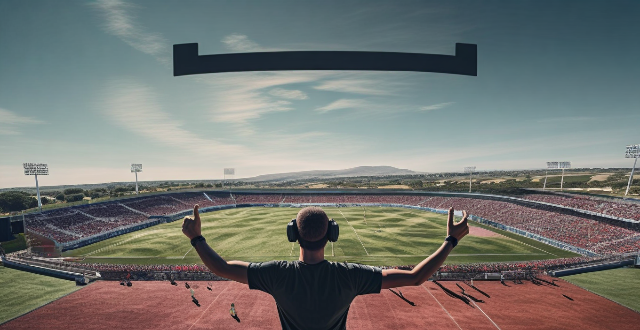
How can virtual reality be used in sports training ?
The article discusses the potential applications of virtual reality (VR) in sports training, including mental rehearsal, skill development, physical training, and team building. VR can simulate game scenarios, provide immediate feedback on technique, create realistic environments for practicing skills, and facilitate collaborative training. It also offers a distraction-free environment for injury recovery and an engaging workout experience. The technology is expected to play an increasingly important role in enhancing athletic performance across various sports.
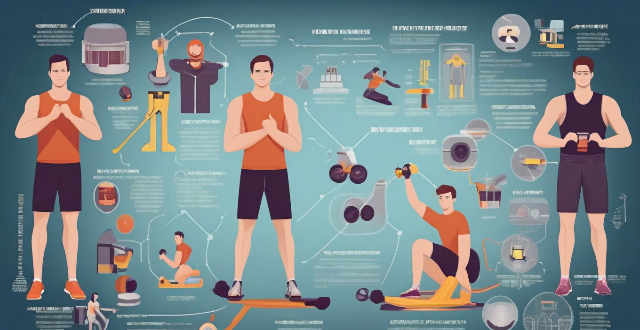
How important is visualization in building a strong sports mentality ?
Visualization, or mental imagery, is a powerful tool for athletes to enhance performance and build a strong sports mentality. It involves using imagination to simulate experiences and practice skills mentally. The science behind visualization shows that it activates similar neural networks as physical performance, aiding in motor learning and refining movement patterns. Psychologically, it boosts confidence and reduces stress. Benefits include skill refinement, strategy planning, resilience building, focus sharpening, clear goal setting, and increased motivation. To implement visualization effectively, find a quiet space, set clear intentions, use all senses, and ensure positive outcomes. Incorporating visualization into training can significantly improve an athlete's readiness for competition and overall sports psychology.

In what ways do sports enhance self-esteem and confidence ?
Participating in sports can significantly boost an individual's self-esteem and confidence. Here are some ways how: 1. Achieving Goals 2. Overcoming Challenges 3. Social Interaction 4. Physical Health 5. Learning New Skills 6. Receiving Feedback 7. Leadership Opportunities 8. Competition Experience 9. Wearing Uniforms 10. Public Performance

How does sports participation influence self-esteem in children ?
Sports participation has a positive impact on children's self-esteem by increasing physical fitness, developing skills and mastery, promoting social interaction and teamwork, and encouraging goal setting and achievement.
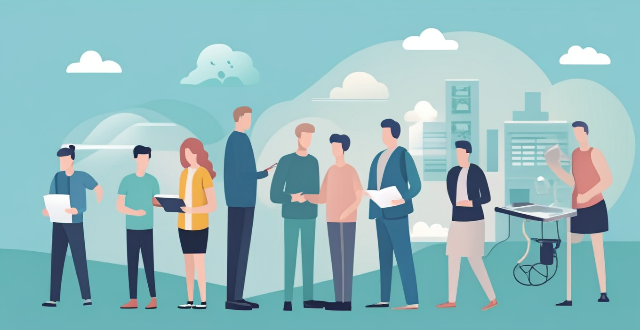
How can sports help individuals develop leadership skills and personal growth ?
Participating in sports can help individuals develop leadership skills and foster personal growth by enhancing goal-setting, teamwork, resilience, decision-making under pressure, accountability, confidence building, discipline, physical health, emotional intelligence, and social interaction.

How does team sports contribute to personal growth and development ?
Team sports contribute significantly to personal growth and development by helping individuals develop various skills, qualities, and values essential for success in all aspects of life. These include communication skills, leadership abilities, teamwork and collaboration, discipline and responsibility, goal setting and achievement, emotional intelligence, and time management. Participating in team sports can help individuals become well-rounded individuals who are prepared for whatever challenges lie ahead.

How do sports help in building character and personal growth ?
The text discusses the various ways in which sports can contribute to building character and promoting personal development. It highlights how sports can help develop discipline, promote teamwork, cultivate perseverance, encourage leadership, enhance self-esteem, teach adherence to rules, facilitate social interaction, improve physical health, and teach individuals how to handle pressure. The author emphasizes that the lessons learned through sports participation can translate into valuable life skills that are essential for success both in sports and beyond. Overall, the text suggests that sports offer an array of benefits that stretch far beyond physical fitness and play a significant role in shaping character and fostering personal growth.

What is the impact of sports programs on the leadership development of students ?
Sports programs in educational institutions have a profound impact on the leadership development of students. These programs provide opportunities for students to develop essential leadership skills such as teamwork, communication, decision-making, and problem-solving. In this article, we will discuss the various ways in which sports programs contribute to the leadership development of students. One of the most significant benefits of participating in sports programs is the opportunity to work with others towards a common goal. This experience teaches students how to collaborate effectively, communicate clearly, and support their teammates. These skills are essential for successful leadership, as leaders must be able to work collaboratively with their team members to achieve their objectives. Participating in sports programs also helps students develop strong communication skills. Athletes must be able to communicate effectively with their coaches, teammates, and even opponents during competitions. This experience teaches students how to convey their thoughts and ideas clearly and persuasively, which is an essential skill for leaders. Sports programs also provide opportunities for students to develop decision-making and problem-solving skills. Athletes must make split-second decisions during games and matches, often under pressure. This experience teaches students how to analyze situations quickly and make informed decisions based on the available information. Finally, sports programs teach students how to set goals and work towards achieving them. Athletes must set personal and team goals, create plans to achieve them, and track their progress along the way. This experience teaches students how to set realistic goals, develop strategies to achieve them, and persevere through challenges. In conclusion, sports programs have a significant impact on the leadership development of students. By providing opportunities for teamwork, communication, decision-making, problem-solving, and goal setting, sports programs help students develop essential leadership skills that they can apply in other areas of their lives. As educators and parents, it is our responsibility to encourage our children to participate in sports programs and support their growth as leaders both on and off the field.

How important is rest and recovery in skill enhancement ?
The text discusses the importance of rest and recovery in the process of skill enhancement. It highlights the cognitive and physical benefits of taking breaks, such as improved mental clarity, memory consolidation, muscle recovery, and injury prevention. The practical implications include avoiding burnout, enhancing performance, and strategies for incorporating rest into practice schedules. Overall, the text emphasizes that rest is a crucial component of long-term skill development and should be given equal consideration alongside deliberate practice and training regimens.
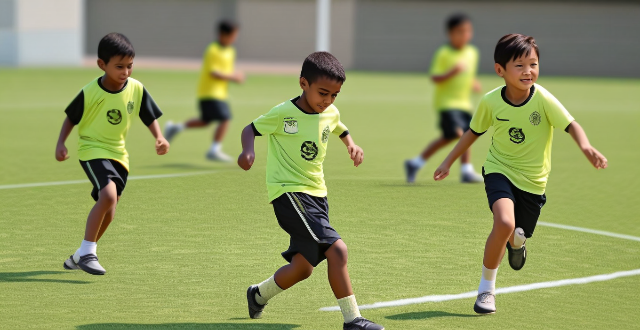
What are the benefits of team sports for child development ?
Team sports provide numerous benefits for child development, including improved physical fitness, coordination and motor skills, healthy lifestyle habits, social skills, self-esteem and confidence, discipline and responsibility, goal setting and achievement, stress relief, resilience, and empathy and compassion.

Can sports be a tool for personal growth and self-discovery ?
Sports offer numerous opportunities for personal growth and self-discovery, including building resilience and determination, developing teamwork and communication skills, enhancing self-discipline, promoting emotional health, discovering passion and purpose, and cultivating mindfulness and focus.

How do extracurricular sports activities contribute to overall student development ?
The text discusses the importance of extracurricular sports activities in student development. It highlights that these activities not only promote physical fitness but also contribute to various aspects of personal growth, including social skills, leadership abilities, and time management. The author explains how participating in sports can help students maintain good physical health, develop social skills through teamwork, foster leadership abilities, and learn effective time management skills. The text concludes that extracurricular sports activities are an essential component of overall student development as they offer numerous benefits beyond just physical fitness.
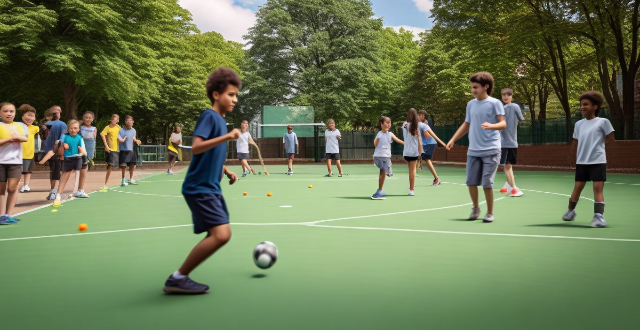
Why is it important for schools to prioritize sports education in their curriculum ?
Sports education is crucial for a student's overall development, promoting physical fitness and life skills. It improves physical health, motor skills, mental well-being, social skills, and academic performance. By prioritizing sports education, schools can create well-rounded individuals prepared for success in all aspects of life.
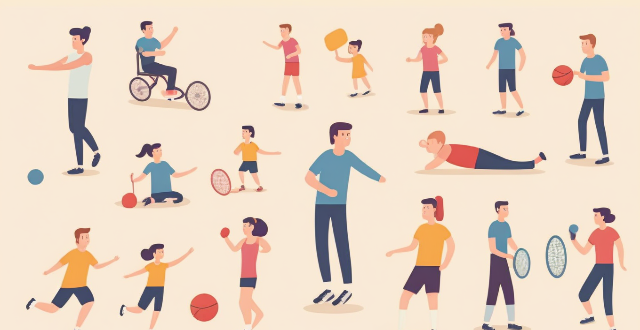
How do competitive sports influence social development and teamwork skills ?
Competitive sports play a significant role in shaping individuals' social development and enhancing their teamwork skills. This essay explores the various ways in which competitive sports influence these aspects of personal growth, including increased social interaction, building confidence and self-esteem, learning to deal with success and failure, collaboration, communication skills, leadership development, and responsibility and accountability. These skills are not only valuable in sports but also transferable to various aspects of life, making competitive sports an essential component of personal growth and development.
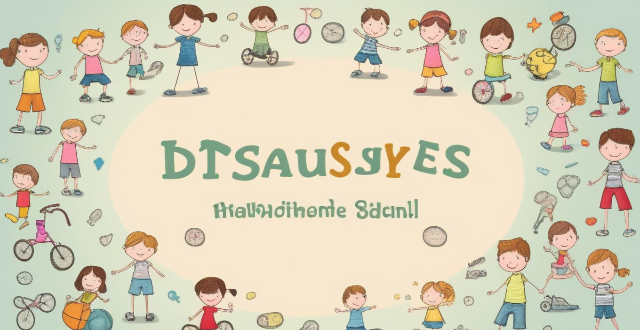
What role do sports play in character building for children ?
The article discusses the various ways in which sports contribute to the overall personality development of children. Sports ensure physical health and well-being, teach valuable life skills such as teamwork, leadership, communication, and goal setting, impact emotional development by boosting self-esteem, teaching resilience, and handling pressure, provide opportunities for socialization, and play a crucial role in moral development by instilling values such as integrity, respect, and responsibility. The author concludes that sports are not just about physical fitness but are powerful tools for character building in children.
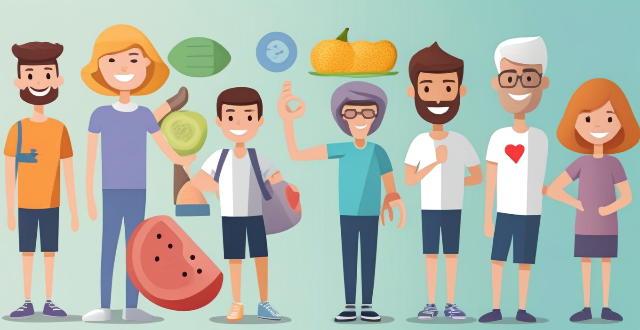
In what ways can sports education improve mental health and well-being ?
Sports education plays a crucial role in enhancing mental health and overall well-being by offering numerous benefits that contribute to the development of a healthy mind and body. It helps reduce stress, improve self-esteem, promote better sleep, provide opportunities for social interaction, teach goal setting, time management, resilience and perseverance, and develop mindfulness and focus. By promoting physical activity, social interaction, goal setting, time management, resilience, and mindfulness, sports education can help individuals develop the skills they need to lead healthy, fulfilling lives.
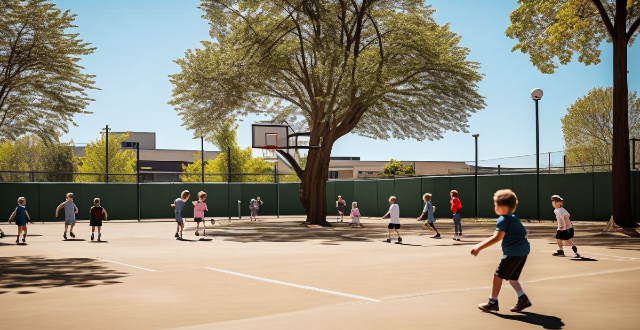
Are there specific sports that improve academic performance in children ?
The article discusses the potential benefits of different types of sports on academic performance in children. It highlights team sports like basketball, soccer, and volleyball for their ability to teach social skills, time management, and discipline. Individual sports such as swimming, tennis, and gymnastics are noted for promoting self-discipline, goal setting, and mental toughness. Outdoor sports like hiking, cycling, and rock climbing are mentioned for providing physical activity, stress relief, and exploration opportunities. The conclusion emphasizes the importance of considering individual differences among children when encouraging sports participation for academic improvement.
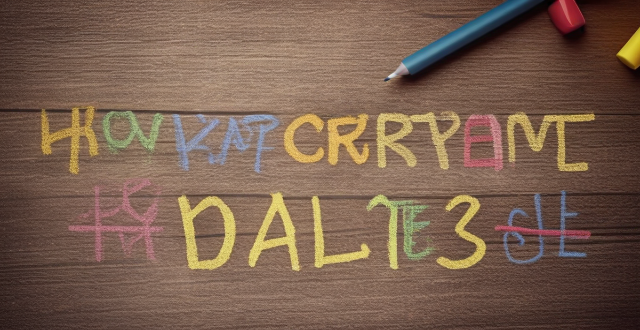
How do sports teach important life skills such as teamwork, perseverance, and leadership ?
The text discusses how sports teach important life skills, including teamwork, perseverance, and leadership. In sports, teamwork is crucial for success, requiring communication, cooperation, and understanding each other's strengths and weaknesses. Athletes learn to collaborate effectively with others, which can be applied in various aspects of life. Sports also teach perseverance by exposing athletes to challenges and setbacks, developing resilience and determination. Participating in sports provides opportunities for individuals to develop leadership skills, such as taking initiative, motivating teammates, and being responsible for the team's success or failure. These skills not only contribute to success in athletics but also have far-reaching benefits in various aspects of life.

How do I choose a tennis training camp that fits my skill level ?
Choosing a tennis training camp that fits your skill level can significantly improve your game. Here are some tips on how to select the right camp: 1. Assess your current skill level by considering your experience, strengths and weaknesses, and fitness level. 2. Research different camps that offer programs specifically designed for your skill level using online directories, social media groups, and reviews from previous attendees. 3. Check the coaches' qualifications and experience, including their credentials, coaching philosophy, and track record of working with players at your skill level. 4. Consider the quality of the camp's facilities and amenities, such as well-maintained courts, access to equipment, and onsite amenities like locker rooms and dining areas. 5. Evaluate the camp's reputation and success rate by reading reviews, asking for referrals, and contacting the camp directly to learn more about their success stories.

What is the impact of sports on the career aspirations of young people ?
Text: The Impact of Sports on the Career Aspirations of Young People Introduction - Sports are integral to society and significantly impact young people's career aspirations. - This article explores both positive and negative aspects of sports' influence on career goals. Positive Impact 1. Development of Key Skills - Teamwork, leadership, perseverance, and other skills developed through sports are beneficial in any career. 2. Increased Confidence and Self-Esteem - Success in sports can boost confidence and self-esteem, making young people more likely to pursue ambitious career goals. 3. Exposure to Diverse Opportunities - Sports open doors to various career paths and scholarships for higher education. Negative Impact 1. Pressure and Burnout - Intense focus on sports achievements can lead to excessive pressure and burnout. 2. Limited Time for Other Activities - Dedication to sports training may leave little time for exploring other interests or developing skills outside of sports. 3. Injury Risks - The risk of injury is always present in sports and can hinder a young person's ability to pursue a sports-related career or affect overall employability. Conclusion - Sports have a profound impact on the career aspirations of young people. - While they offer numerous benefits, it is essential to be aware of potential drawbacks. - Balancing sports involvement with other activities and interests allows young individuals to make informed decisions about their future career paths while enjoying the benefits of sports.

Is speed reading a natural ability or a skill that can be learned ?
Speed reading is a topic of interest for many individuals who wish to improve their reading efficiency and comprehension. The question arises whether speed reading is a natural ability that some people possess, or if it is a skill that can be learned and developed through practice and training. While there may be some individuals who possess a natural ability for speed reading, it is generally accepted that speed reading is a skill that can be learned and improved upon through practice and training. By employing specific techniques and strategies, anyone can enhance their reading speed and comprehension, ultimately increasing their productivity and knowledge acquisition.

In what ways can sports education foster a lifelong love of physical activity ?
The text discusses the role of sports education in promoting a lifelong passion for physical activity among children. It underscores the importance of making sports fun and enjoyable, offering choices, creating a supportive environment, improving fitness levels, building motor skills, developing sportsmanship, teaching teamwork, perseverance, discipline, and time management. The author emphasizes that sports education is essential for children's overall development and encourages prioritizing it in schools and communities to foster healthier, happier lives filled with lifelong love for physical activity.